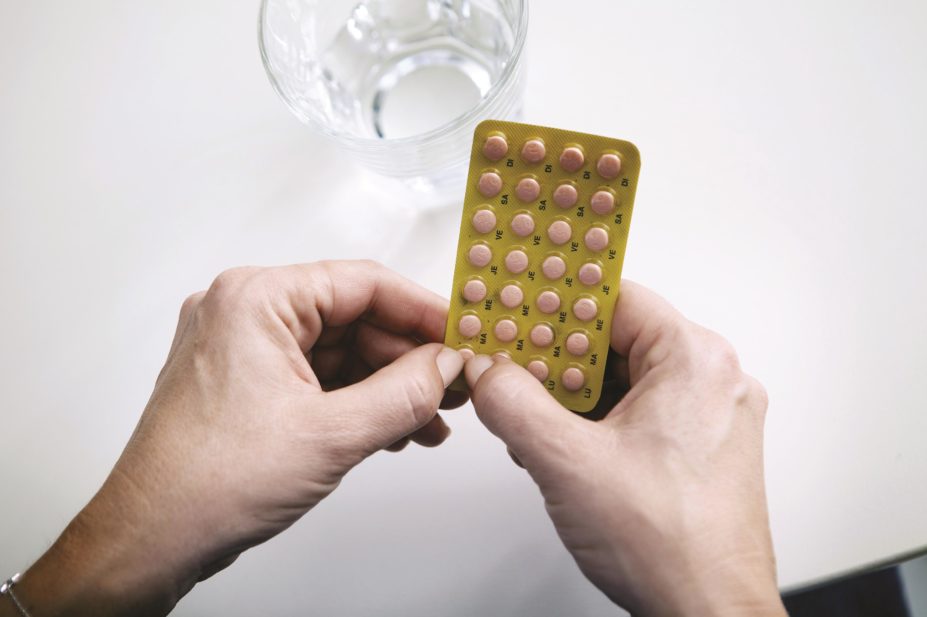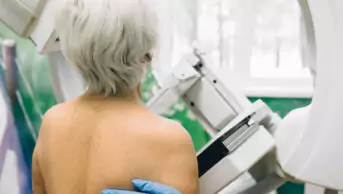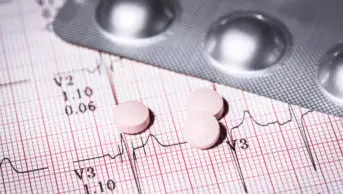
Shutterstock.com
Women taking combined hormone replacement therapy (HRT) are nearly three times more likely to develop breast cancer than non-users.
Researchers also believe that the results of their prospective study reveal a more accurate calculation of risk compared with previous similar studies which, because of the data used, may have underestimated risk by as much as 60%.
The risk increases the longer the HRT is taken but gradually returns to normal once the treatment stops, according to the study pulished in the British Journal of Cancer
[
1]
.
“Our results show that risk of breast cancer increases with duration of use of combined menopausal hormone therapy (MHT) to ≥15 years, and relative risks in most of the published literature are likely to be substantially underestimated because of lack of updating MHT status through follow-up in cohort studies and inclusion of women with inferred menopausal age in cohort or case–control analyses,” the researchers write.
“These results provide further information to allow women to make informed decisions about the potential risks and benefits of MHT use.”
The research was the latest in the ongoing Breast Cancer Now Generations Study – a prospective study led by the UK’s Institute of Cancer Research, a public research institute. The study was established in 2003 to look into the causes of breast cancer by tracking more than 100,000 patients for more than 40 years.
In this study, the researchers used data supplied by the women in serial questionnaires to estimate hazard ratios for breast cancer amongst post-menopausal women with known menopausal age.
They also looked at the difference that not updating women’s MHT use and relying only on inferred menopausal age rather than known age would have on calculated risk.
The team found that 58,148 women had reached menopause within six years of being recruited to the study and of those 96% had completed a follow-up questionnaire. Of the 39,183 women with known menopausal age, 775 developed breast cancer.
The analysis revealed the hazard ratio in relation to current combined MHT use in women relative to those women with no previous MHT use was 2.74 (95% confidence interval [CI] 2.05–3.65) for a median duration of 5.4 years of current use, reaching 3.27 (95% CI 1.53–6.99) at 15-years plus of use.
However, the excess hazard ratio was underestimated by 53% if the woman’s combined MHT use was not updated after recruitment and by 13% if women with uncertain menopausal age were included. If both applied, the excess hazard ratio was underestimated by 59%.
Commenting on the findings, Delyth Morgan, chief executive of the charity Breast Cancer Now, says the research will help women make a more informed choice about whether to use HRT.
“On balance, some women will feel HRT to be a necessity,” she says. “But in order to minimise the risk of breast cancer during treatment, it is recommended that the lowest effective dose is used for the shortest possible time.
“The good news is that the increased risk of breast cancer begins to fall once you stop using HRT.”
The National Institute for Health and Care Excellence (NICE) – the health technology assessment body that sets national clinical guidelines in England and Wales – says the research reflects its guidance on the diagnosis and management of menopause by confirming no increased risk with oestrogen-only HRT, but that combined HRT can be associated with an increased risk.
In a statement, NICE says: “[Our] guideline makes clear that menopausal women should be informed that the impact of HRT on the risk of breast cancer varies with the type of HRT used.
“The message from our guidance to women is clear – talk about the menopause with your clinician if you need advice on your symptoms – it’s very important to discuss the options to find what might help you.”
The guideline is due to be reviewed in 2017 when NICE will take the findings from this study into account, it confirms.
References
[1] Jones ME, Schoemaker MJ, Wright L et al. Menopausal hormone therapy and breast cancer: what is the true size of the increased risk? British Journal of Cancer 2016;1–9. doi: 10.1038/bjc.2016.231
You may also be interested in

Medicines regulator approves anastrozole for prevention of breast cancer in post-menopausal women

Statins may protect heart from breast cancer chemotherapy
